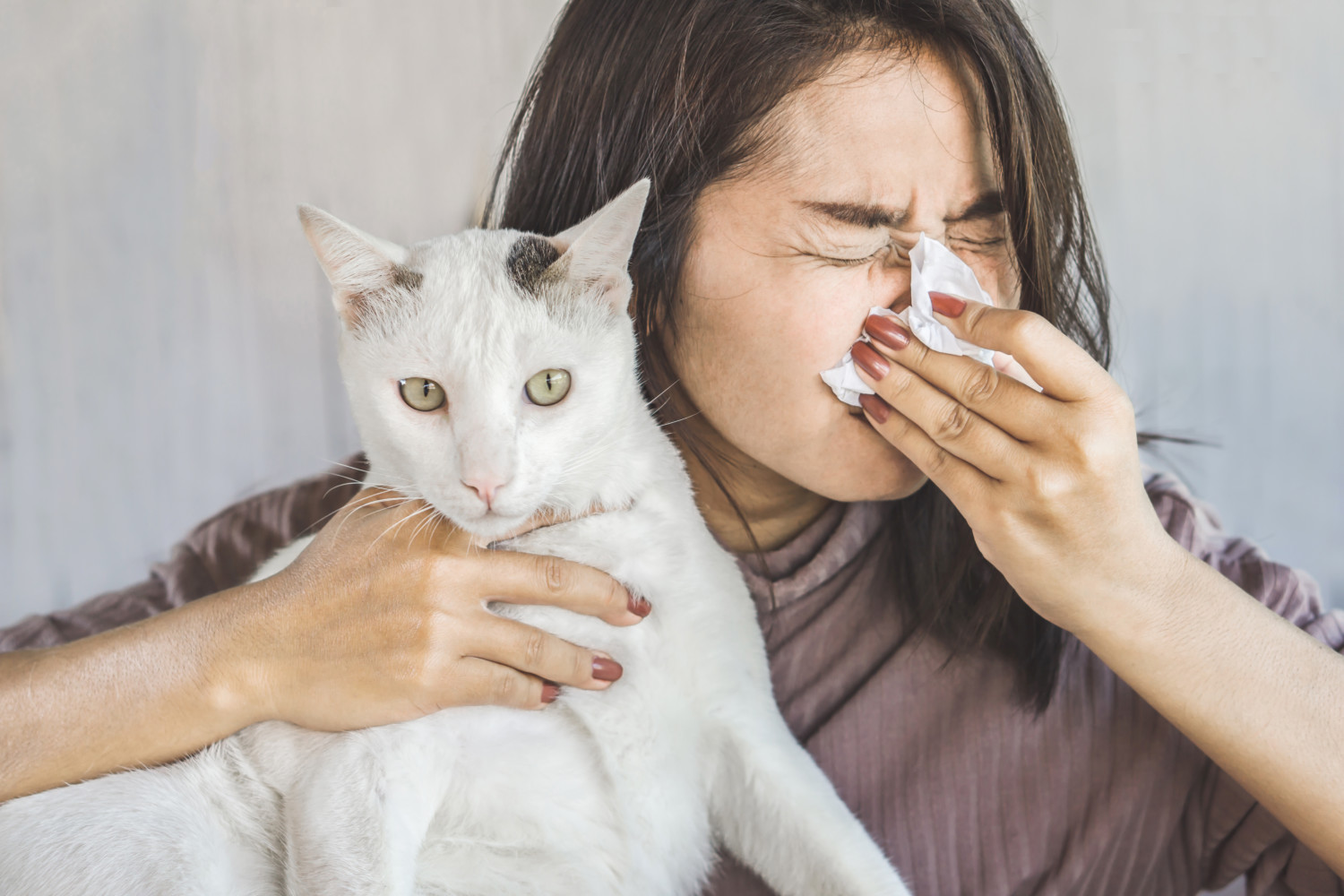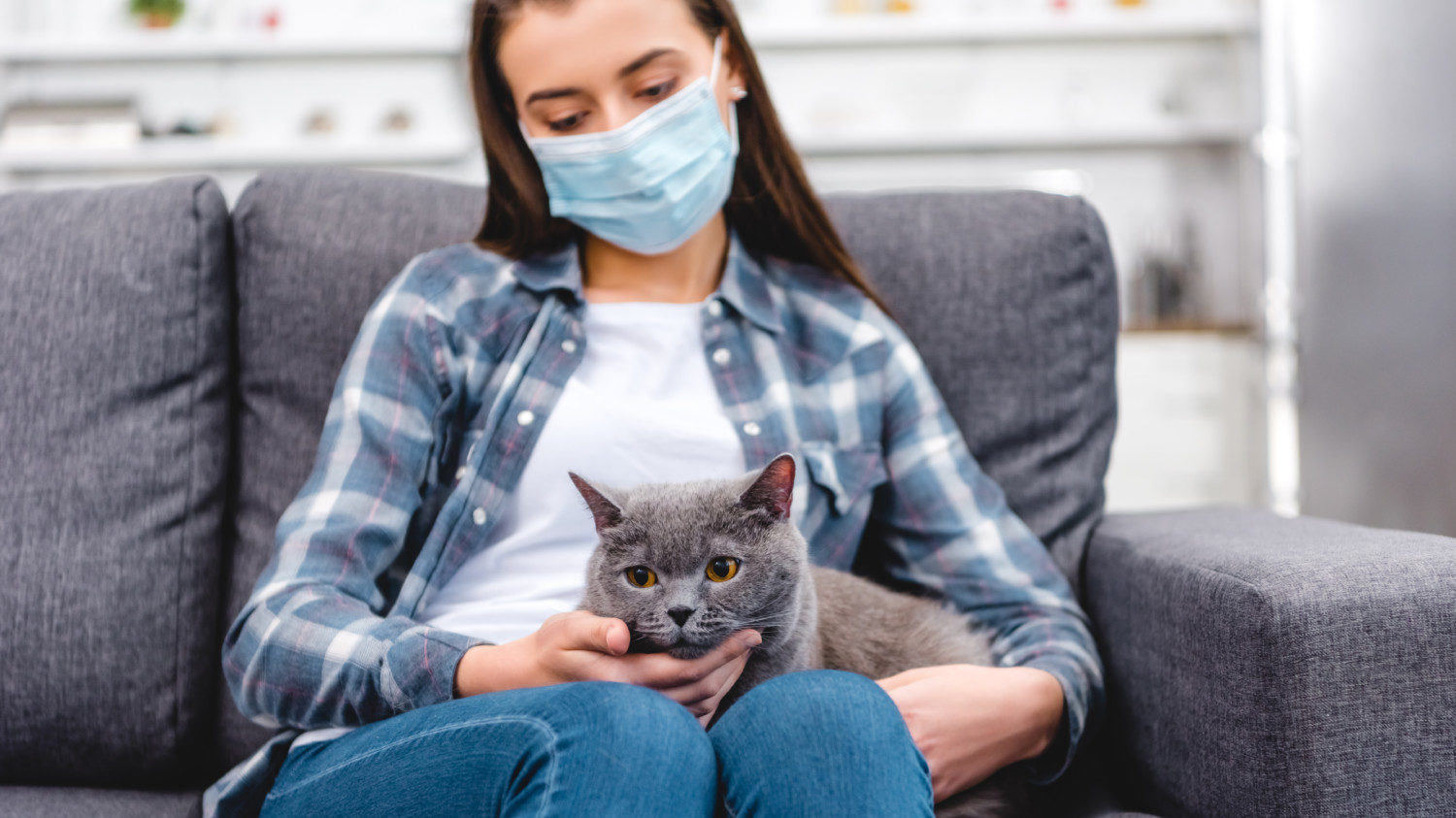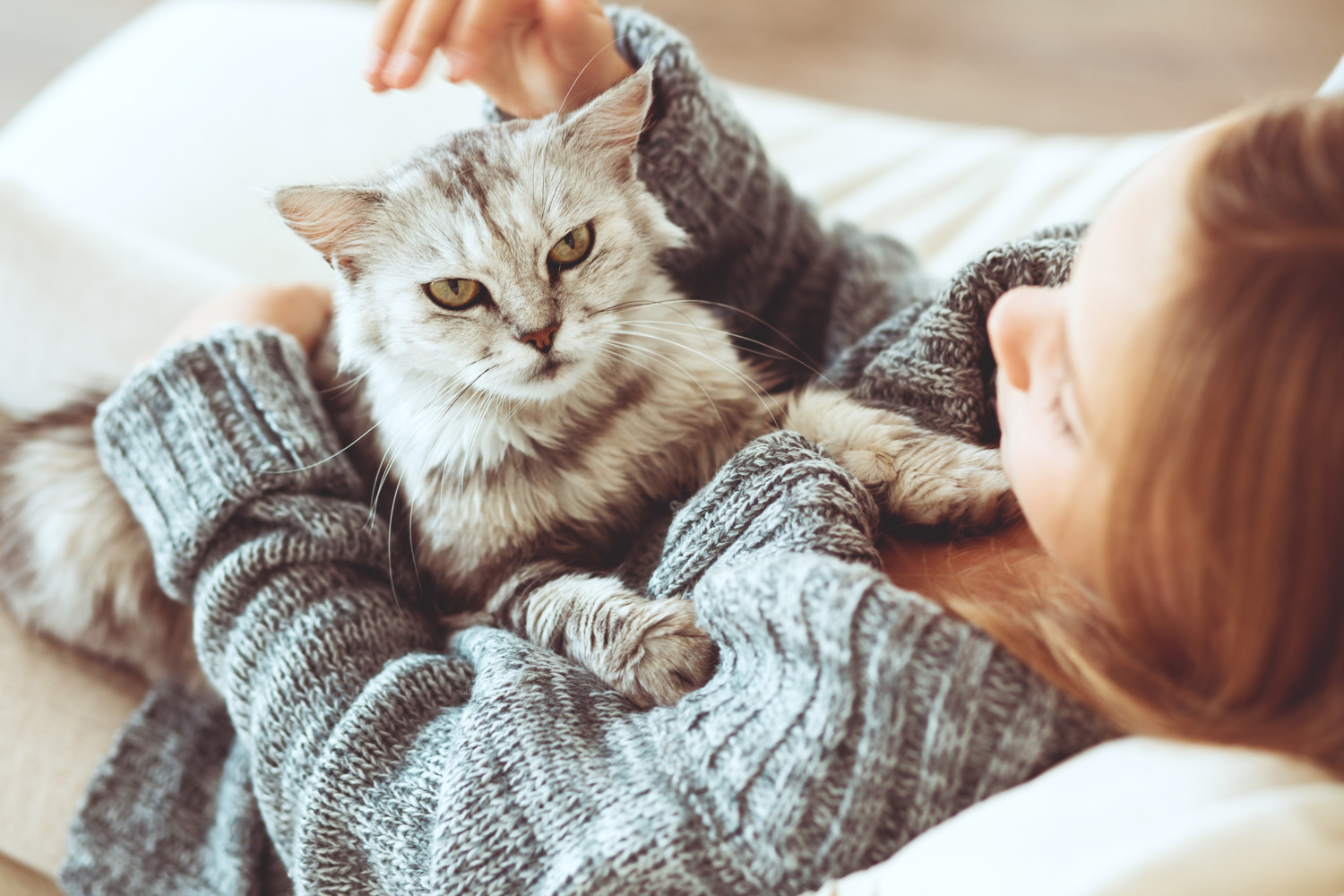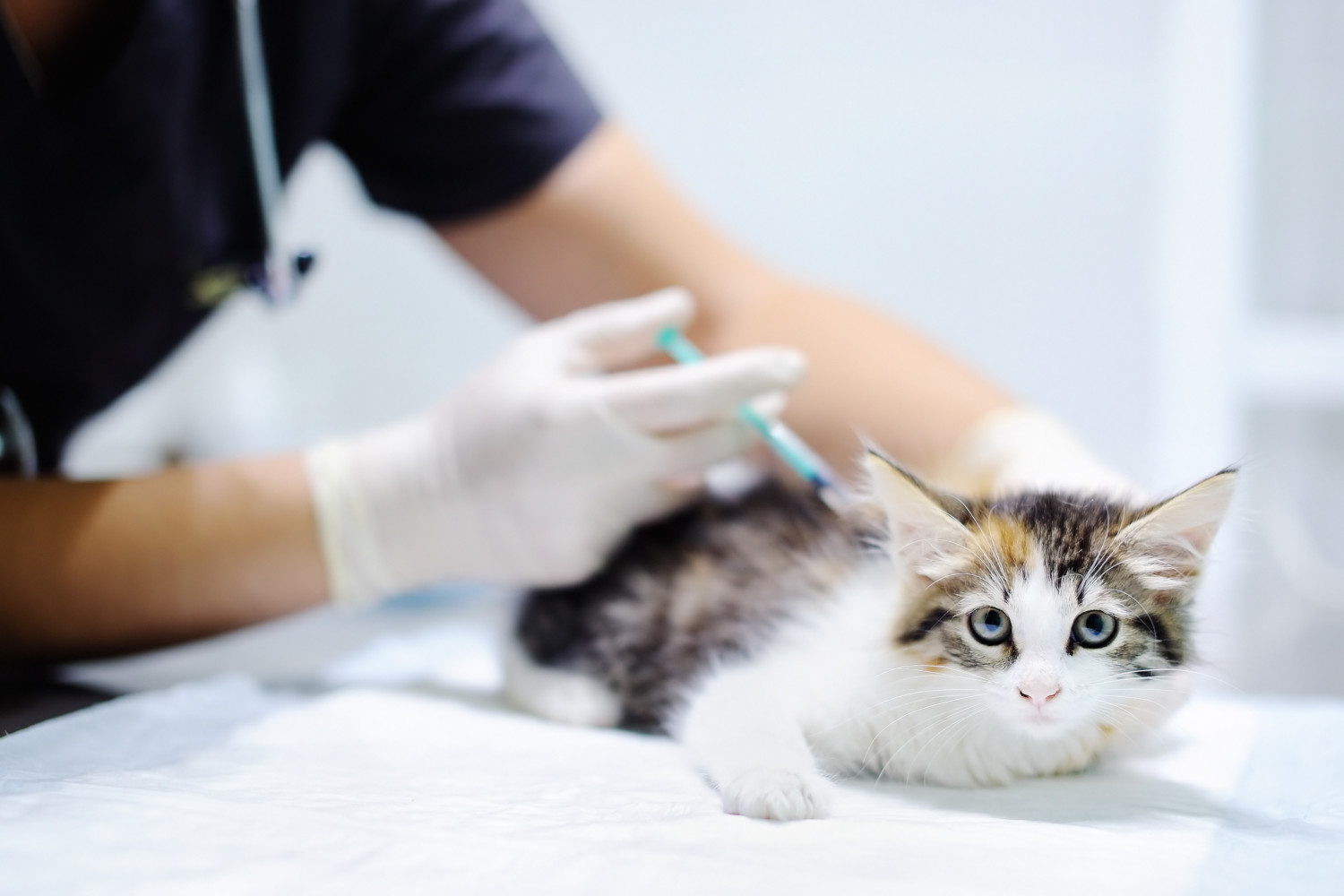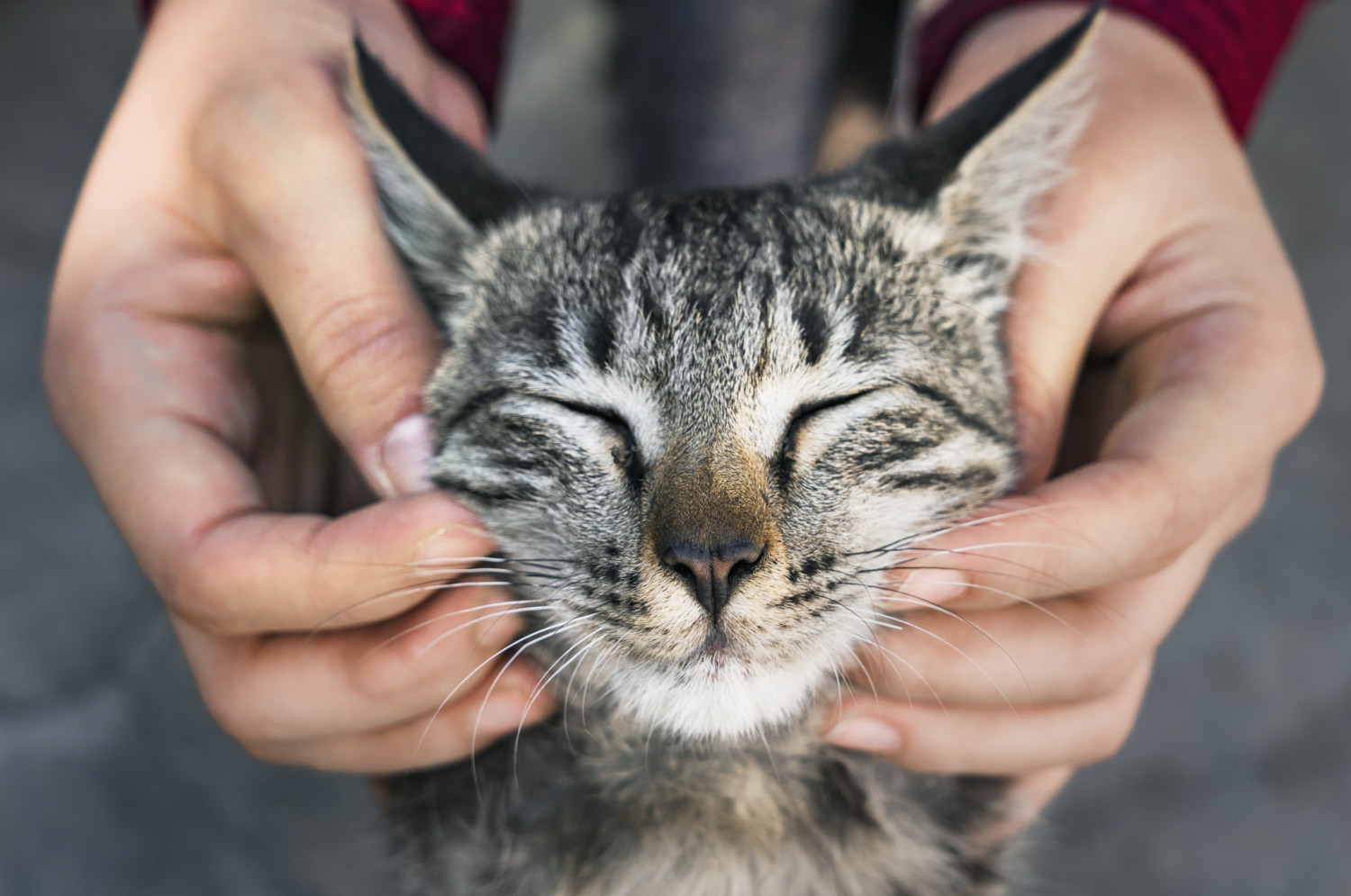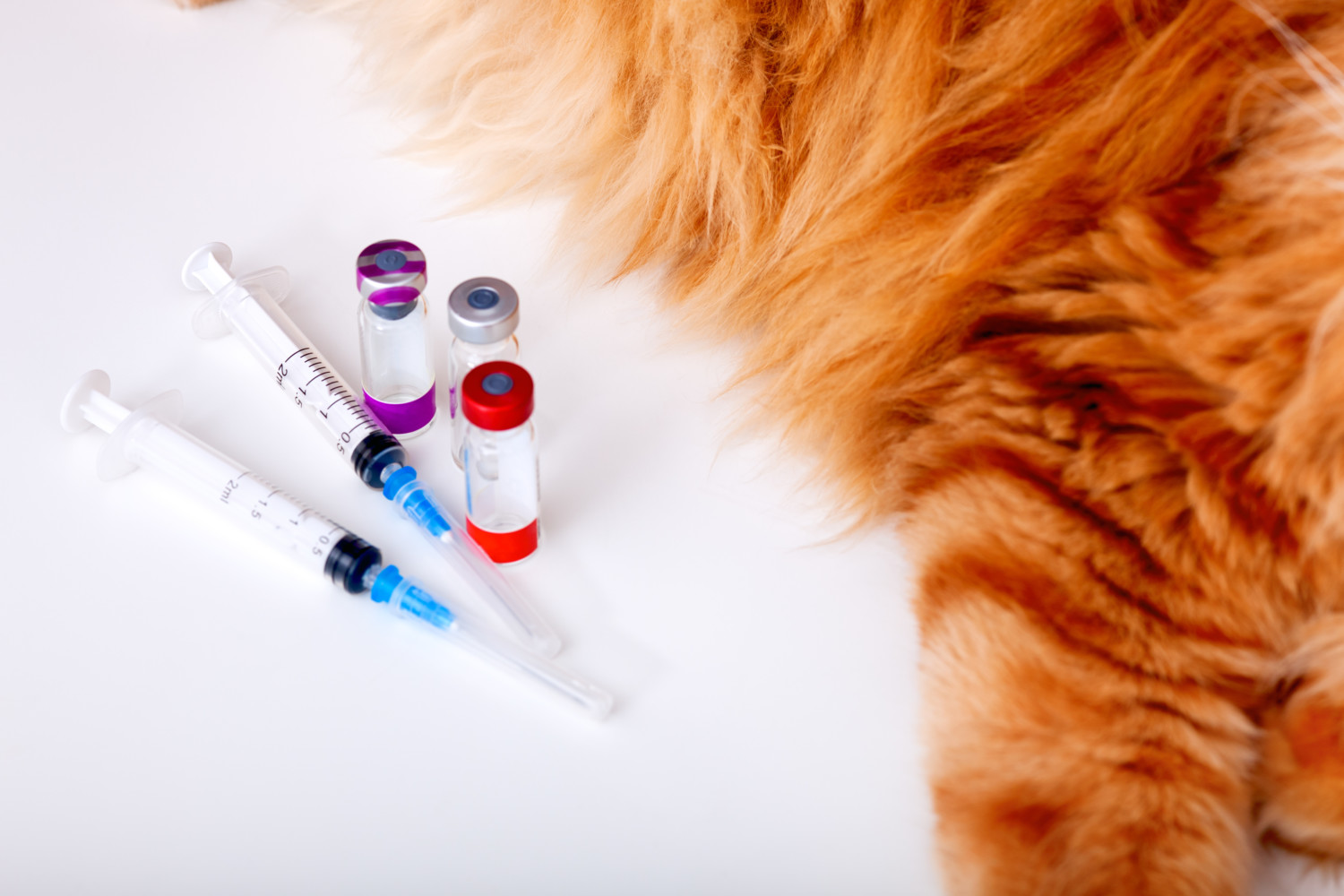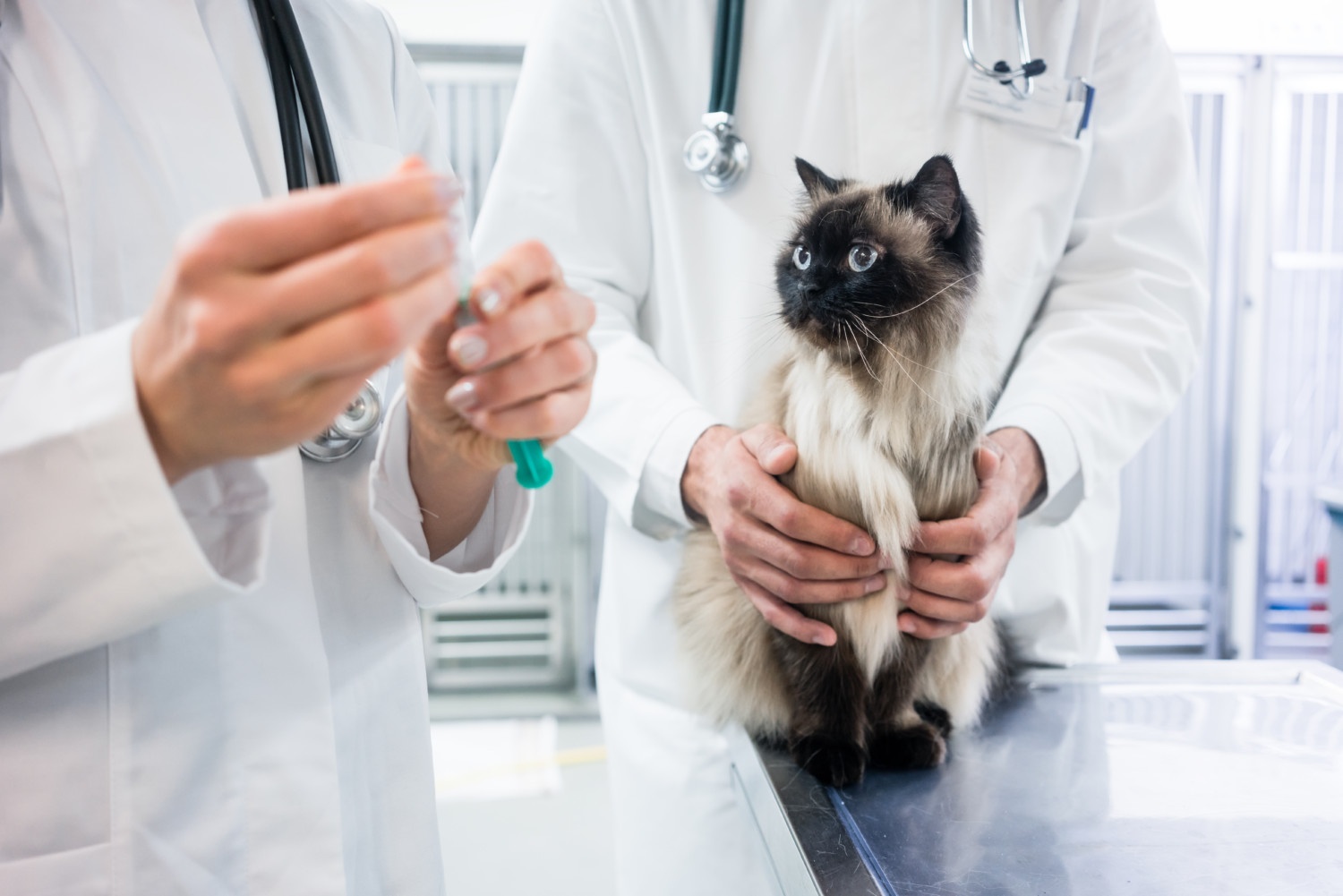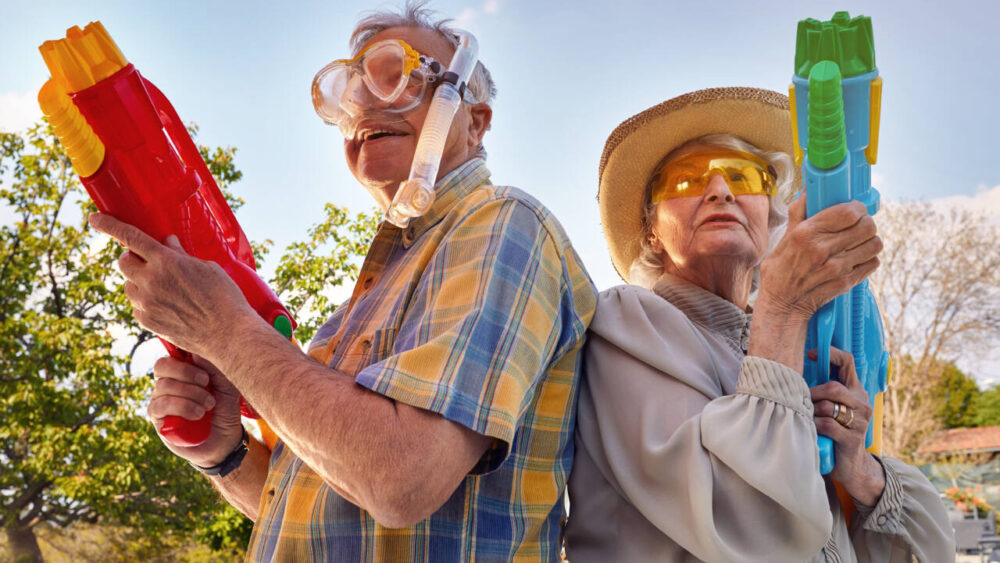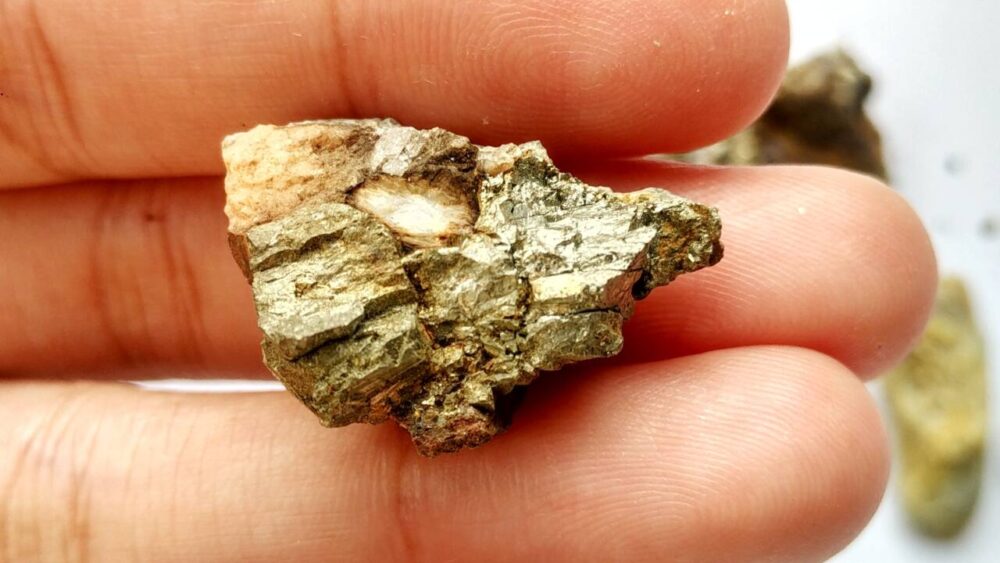This new vaccine could help reduce cat allergies
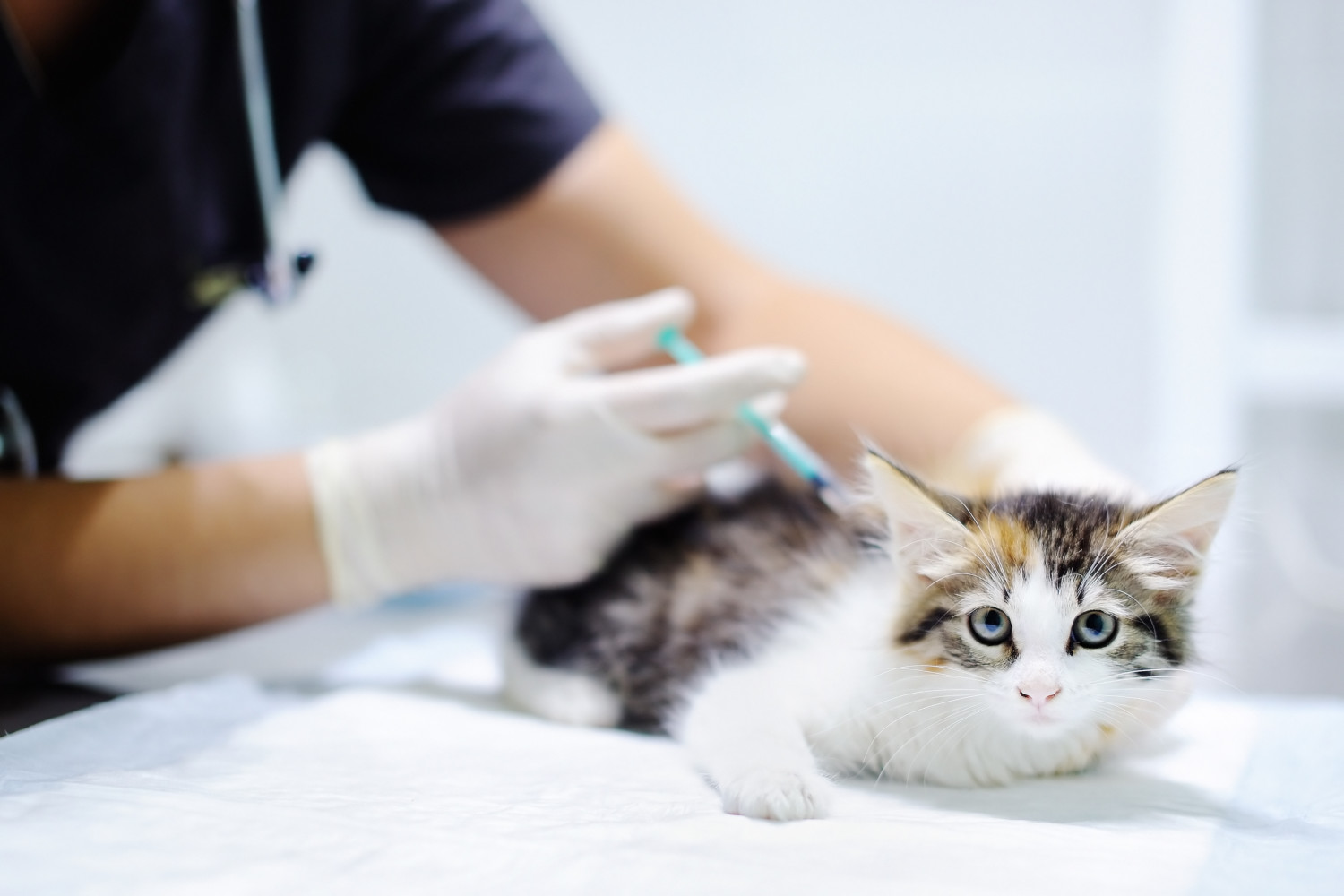
Our days of sneezing when there’s a cat nearby may soon be reduced. Researchers at University Hospital Zurich in Switzerland have published a study claiming they have produced a vaccine that is given to cats to lower human allergic reactions to their fur, such as sneezing, congestion and rash.
The study, published in the Journal of Allergy and Clinical Immunology in July, says the vaccine works to reduce a protein cats secrete through skin and saliva called Fel d 1. That protein stays on the dry skin of cats that falls off (dander), which is why those with an allergy to it will sneeze or react even when a cat is no longer in the space affected.
At least 1 in 10 people is thought to be allergic to cats! That means cat owners who do get sneezy around their pets have to spend a lot of time cleaning and trying to keep cat hair at bay. Some even end up having to give up their precious felines up — which means a lot of cats don’t find their forever homes, all because of human allergies.
If you suffer from allergies, you know they can be challenging to deal with, no matter how much you love your cat. If the particles from cat hair and dry skin get into a person’s airway, the body may think it is under attack and trigger a rush of histamine. The immune system goes into attack mode, which is what causes the sneezing or watery eyes and may even lead to the development of asthma.
As the study outlines, “Cat allergy in human subjects is usually caused by the major cat allergen Fel d 1 and is found in approximately 10% of the Western population. Currently, there is no efficient and safe therapy for cat allergy available. Allergic patients usually try to avoid cats or treat their allergy symptoms.”
Thankfully, there may be another solution ow. The new Fel-CuMVTT vaccine is injected into the cat to reduce the amount of Fel d 1. It induces high levels of antibodies in the cats, which bind and neutralize the allergen. The vaccine basically immunizes the cat against itself!
Researchers tested 54 cats in four separate pre-clinical trials with positive results.
“The vaccine was tested in more than 50 cats to date and induced a strong and sustained immune response against Fel d 1 in all animals,” the study’s authors wrote. “No severe clinical signs, skin irritation at the site of injection, or changes in food consumption or behavior were observed.”
It should be noted that Fel d 1, which is also present in the anal glands and sebaceous glands of cats, is not the only feline allergen that affects humans. Up to 10 other allergens have been found, but Fel d 1 is the major one.
Scientists say it exists in over 99% of American homes, along with classrooms, cars, doctor’s offices and shopping centers.
In the study’s conclusion, the researchers state, “Both human subjects and animals could profit from this treatment because allergic cat owners would reduce their risk of developing chronic diseases, such as asthma, and become more tolerant of their cats, which therefore could stay in the households and not need to be relinquished to animal shelters.”
The studies are being supported in part by a Swiss biotech firm called HypoPet that was spun off from the University of Zurich. The researchers hope that the injection-based vaccine, marketed as HypoCat, could be available within three years.
“This work was a key step in the milestone-driven development of HypoCat, the lead project in our product pipeline,” Dr. Gary Jennings, CEO of HypoPet AG, said in a statement.
He also added, “Moreover, our development partner Benchmark Holdings recently announced successful completion of other key safety and efficacy trials and transfer of the HypoCat manufacture process to GMP [Good Manufacturing Processes]. Consequently, we are pressing ahead with registration studies and discussions with European and U.S. regulators with the hope of bringing this much-needed product to the market.”
Cat allergies may be on the way out (at least to some degree) — and that’s pretty cool news!


